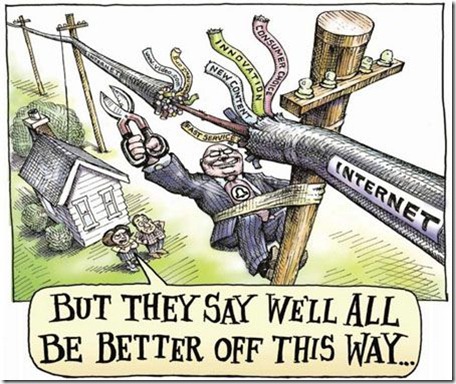"Several news sources report that today's college students show a precipitous drop in empathy (here's MSNBC's take). The study shows that students since the year 2000 had 40% less empathy than those 20 and 30 years before them. The article lays out a laundry list of culprits, from child-rearing practices and the self-help movement, to video games and social media, to a free-market economy and income inequality. There's also a link so you can test your very own level of narcissism. Let's hope the Slashdot crowd doesn't break the empathy counter on the downside."
Is "generation me" all about me?
"Many people see the current group of college students — sometimes called '
Generation Me '
— as one of the most self-centered, narcissistic, competitive,
confident and individualistic in recent history," said Konrath,
Konrath's
colleague graduate student Edward O'Brien added, "It's not surprising
that this growing emphasis on the self is accompanied by a
corresponding devaluation of others.”
The role of media
Even
so, Konrath and O'Brien suggest several reasons for the lower empathy
they found, including the ever-increasing exposure to media in the
current generation.
"Compared
to 30 years ago, the average American now is exposed to three times as
much nonwork-related information," Konrath said. "
The rise in social media could also play a role.
"The
ease of having 'friends' online might make people more likely to just
tune out when they don't feel like responding to others' problems, a
behavior that could carry over offline," O'Brien said.
"I clearly am addicted and the dependency is sickening," said one
person in the study. "I feel like most people these days are in a similar situation, for
between having a Blackberry, a laptop, a television, and an iPod, people
have become unable to shed their media skin."
In the new study... students wrote more than 110,000 words: in aggregate, about
the same number of words as a 400-page novel.
"We were surprised by how many students admitted that they were 'incredibly addicted' to media," "But we noticed that what they wrote at length about was how they
hated losing their personal connections. Going without media meant, in
their world, going without their friends and family."
Building upon that observation, an alternative explanation is that
the students may have identified the "media" as what they were craving,
but were actually missing the social connections afforded by the media.
In other words, the students were "addicted" to the social ties —
friendships and relationships — with others.
"The students did complain about how boring it was go anywhere and do
anything without being plugged into music on their MP3 players," said
Moeller.
"And many commented that it was almost impossible to avoid the TVs on
in the background at all times in their friends' rooms. But what they spoke about in the strongest terms was how their lack
of access to
text messaging, phone calling, instant messaging, e-mail and
Facebook, meant that they couldn't connect with friends who lived close
by, much less those far away."
"Texting and IM-ing my friends gives me a constant feeling of
comfort," wrote one student.
"When I did not have those two luxuries, I felt quite alone and
secluded from my life.
Although I go to a school with thousands of
students, the fact that I was not able to communicate with anyone via
technology was almost unbearable."
Very few students in the study reported that they regularly watched
news on television or read a local or national newspaper... They also didn't mention checking mainstream media news sites or
listening to radio news while commuting in their cars. Yet student after
student demonstrated knowledge of specific news stories.
How did they get the information?
In a
disaggregated way, and not
typically from the news outlet that broke or committed resources to a
story... "Students expressed tremendous
anxiety about
being cut-off from information,”
"But most of all they care about being cut off from that
instantaneous flow of information that comes from all sides and does not
seem tied to any single device or application or news outlet."

That's the real takeaway of this study for journalists: students
showed no significant loyalty to a news program, news personality or
even news platform. Students have only a casual relationship to the
originators of news,
and in fact rarely distinguished between news and
more general information.
...often by following the story via "unconventional" outlets,
such as through text messages, their e-mail accounts, Facebook and
Twitter.
 past, said the FCC's proposed rules would actually "destroy" the principle of "Net Neutrality."
past, said the FCC's proposed rules would actually "destroy" the principle of "Net Neutrality."





